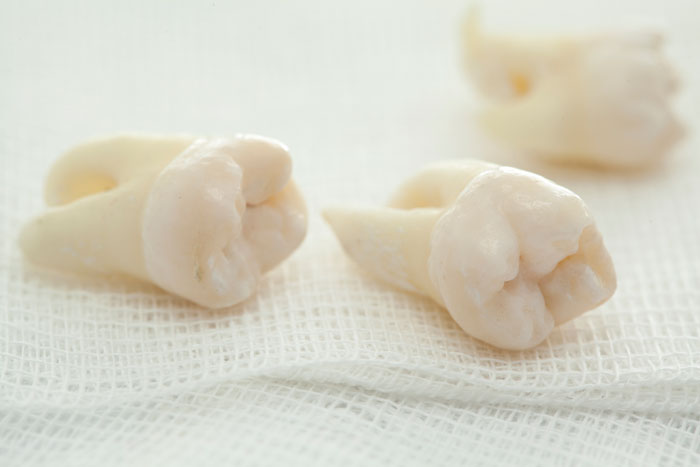What to Expect with Wisdom Teeth Removal
 Just reading the title of this article may have made you a bit nervous. To be sure, the words ‘wisdom teeth removal’ are not ones that many patients are happy to hear. If you are even a bit apprehensive about dental work in general, the thought of having your wisdom teeth removed is going to get your nerves churning.
Just reading the title of this article may have made you a bit nervous. To be sure, the words ‘wisdom teeth removal’ are not ones that many patients are happy to hear. If you are even a bit apprehensive about dental work in general, the thought of having your wisdom teeth removed is going to get your nerves churning.
But there is good news. Wisdom teeth removal doesn’t have to be as bad as you might be imagining. We aren’t trying to say that it will be fun, but the team at Spokane Dental works hard to make your experience as comfortable as possible from start to finish. By knowing precisely what to expect, you can prepare yourself mentally ahead of time. Knowledge is power, and that is certainly the case here. Let’s take a look at what you can expect if you decide to go ahead with wisdom teeth removal.
What’s the Point?
Before talking about what you can expect when having your wisdom teeth removed, we should first touch on why you would want to have this type of work done. Commonly, impacted wisdom teeth are removed, which means the teeth are trapped in your jawbone or your gums. This can be painful, and often the best way to relieve the pain is to remove the teeth. Also, the teeth may have come in at the wrong angle, creating problems for other teeth in the area. Working with your dentist is obviously important in determining whether or not removing your wisdom teeth is the best course of action.
Setting the Stage
As you might imagine, you are not going to walk into the dentist’s office for your first visit and immediately have your wisdom teeth removed. There is some work that needs to be done in advance in order to prepare for the removal, just as is the case with any other kind of surgery. For instance, you will need to have a proper examination to assess the current status of your wisdom teeth. Also, you will have the opportunity to ask questions, determine what anesthesia will be used, etc. The surgery will also need to be scheduled so you can adjust your calendar as necessary.
Pain Prevention
Quite obviously, you will need to be under some type of anesthesia as the surgery is taking place. In general, there are three basic options that will be considered here – a local anesthetic, IV sedation, or general anesthesia. The right choice for your wisdom teeth removal is going to depend on a number of factors, so you will have to work through this topic with your dentist. Factors such as other medications you take, or your history with anesthesia, will play a role in making this determination.
Having Surgery
Although wisdom teeth removal has something of an intimidating reputation that comes along with it, the good news is that this is generally a rather short surgery. The work is typically completed in under an hour, depending on the specifics of your case, of course. If it is necessary to cut into your gums in order to remove the teeth, you will likely wind up with stitches that should dissolve away in a few days’ time. Depending on the type of anesthesia which is used, you may be awake for the surgery, or you may sleep through the procedure.
In-Office Recovery
When the surgery has been completed, you will need a little bit of time to let the anesthesia wear off and make sure you are feeling okay. It’s possible, depending on the type of anesthesia that was used in your case, that you will need someone to drive you home from your appointment. As is always the case when receiving medical care, it’s important to remain patient and work with the staff to reach the best possible outcome.
Recovering at Home
Once you are back home, the attention quickly turns to
The foods you select are important early in the healing process. It probably won’t surprise you to learn that picking crunchy or sticky foods is going to be a bad idea early on. You don’t want to force your mouth to work too hard during the healing process, and you don’t want to put anything in your mouth that may cause your wounds to open up. Soft foods are the way to go in the aftermath of a wisdom tooth removal.
Perhaps the single most important thing you can do to affect a positive recovery at home is to listen to the advice of your doctor. He or she knows the specifics of your case and will be able to provide you with valuable advice. Take the advice to heart, follow your directions carefully, and be patient while your body does the work of healing and recovery.
Thank you for taking the time to learn a little bit about the process of having your wisdom teeth removed. We hope that simply educating yourself on the basics of this procedure and what it involves will help you to relax and see that you can get through it successfully. Of course, if you still have questions, please take a moment to contact Spokane Dental. We will be happy to answer any of the questions you may have, and we can schedule an appointment for you to see a dentist and have your mouth examined. Thanks again for stopping by, and we look forward to serving you!

